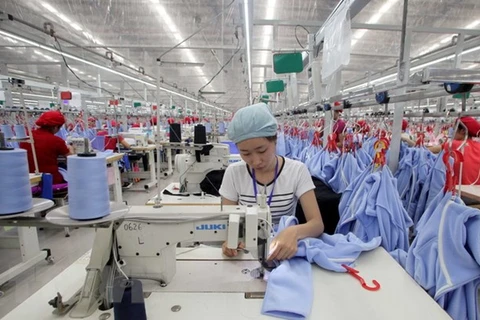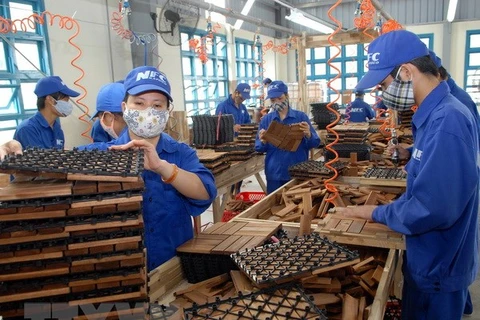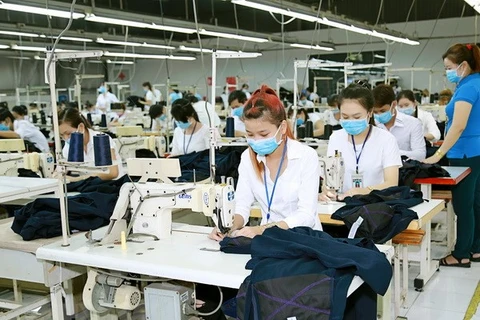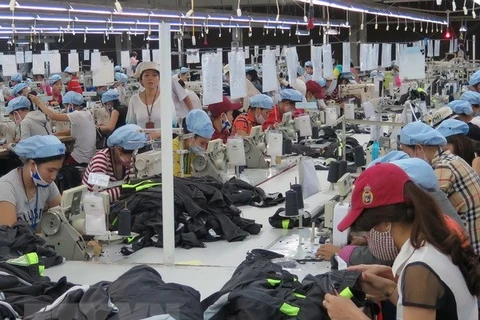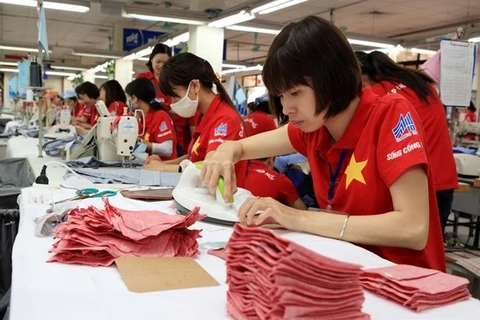HCM City (VNA) – Free trade agreements, particularly the Comprehensive and Progressive Agreement for Trans-Pacific Partnership (CPTPP) and the EU-Vietnam Free Trade Agreement (EVFTA), are the driving force to attract big investments in Vietnam’s garment-textile industry.
The statement was made by Chairman of the Vietnam Textile and Apparel Association Vu Duc Gaing at a conference held in Ho Chi Minh City on August 2 highlighting the impacts of the CPTPP and EVFTA on the garment-textile sector.
According to Giang, although the two agreements have yet come into force, they have created great attraction to foreign investors.
In the first six months of 2018, Vietnam lured 2.8 billion USD in foreign direct investment (FDI) in garment-textile, bringing the total FDI in the sector to nearly 17.5 billion USD.
A considerable number of large-scale projects were carried out in the first half of the year including a German-invested sheep wool yarn spinning plant in the Central Highlands city of Da Lat and an US-invested yarn production plant in the southern province of Dong Nai.
Many Vietnamese firms have invested in material production projects, which are the key to solving the country’s dependence on importing garment-textile materials in the coming years as well as helping Vietnam reduce production cost and increase competitiveness, Giang said.
Apart from drawing investment, CPTPP and EVFTA have helped change the structure of export markets of Vietnamese garment-textile products in recent years, he added.
Previously, many businesses from Canada, Australia and New Zealand just focused on the Chinese market, but now they have studied Vietnamese garment-textile products with the signing of specific orders, he noted.
Vuong Duc Anh from the Ministry of Industry and Trade’s Import-Export Department, said there are huge opportunities for the garment-textile sector once the CPTPP and EVFTA take into effect.
However, to optimise benefits from the agreements, Vietnamese firms have to overcome some challenges such as the competitive pressure from FDI companies and the strict rules of origin, he said.
Besides proactively approaching to new markets, local businesses should pay more attention to the origin of products and improving quality to secure orders and maintain long-term partnership with foreign enterprises, he suggested.-VNA
VNA

